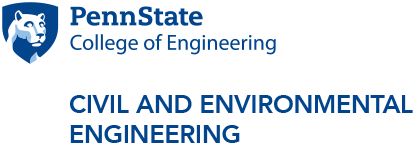WARR: Understanding a River’s Legacy for Restoration
Abstract
A river’s legacy refers to the past events (i.e., natural processes or human alterations) that have left a signature on river ecosystems. Understanding a river’s legacy is essential to determine sustainable management and restoration. Past geomorphic processes, such as continental glaciation, have left geomorphic legacies of coarse sediment, which need to be considered during restoration. In addition to flow regulation, harvesting riparian vegetation and removing large instream wood for navigation and flood prevention are some of the most significant impacts on river systems. However, in contrast to flow or sediment regimes´ alterations, the effects of vegetation and wood removal are still overlooked or even forgotten. Moreover, river engineering and other channel changes to facilitate timber-floating, for example, have fundamentally altered rivers by reducing channel complexity. These legacies can skew perceptions of what is ‘natural’ in a river in relation to river processes and forms and their natural range of variability, significantly affecting river management and restoration. In this seminar, we will focus on different aspects in which it is crucial to consider a river’s natural and anthropogenic legacy, concerning sediment, instream wood, and riparian vegetation, in managing and restoring rivers.
Bio Dr. Virginia Ruiz-Villanueva
Virginia Ruiz-Villanueva is an Assistant Professor at the Institute of Earth Surface Dynamics at the University of Lausanne (UNIL) in Switzerland. She earned a bachelor´s degree in Earth Sciences from the University of Oviedo (Spain), and a master´s degree in Geomorphology, Hydrology, and Natural Hazards from the University Complutense of Madrid (Spain), where she also obtained her Ph.D. in Fluvial Geomorphology. She worked at both the University of Bern and Geneva as a postdoc, and as a senior researcher at the Swiss Institute of Technology (ETH) in Zurich before taking her current faculty position at UNIL in 2020.
Virginia has been extensively working on fluvial processes and related hazards in mountain river basins. She pays special attention to the complex interactions between flow, sediment, vegetation, and instream wood. In her work, Virginia combines a field-based understanding of actual rivers with numerical modeling and remote sensing. Her work aims at developing new methods for monitoring and modeling fluvial processes, helping design effective management strategies, and informing sustainable environmental policies.
Bio of Dr. Lina Polvi Sjöberg
Lina Polvi Sjöberg is an Associate Professor in the Department of Ecology and Environmental Science at Umeå University in Sweden. She earned a bachelor’s degree in Geology from the College of William and Mary (Virginia, USA) and a master’s degree in Geoscience and PhD in Earth Science, both from Colorado State University (Colorado, USA). Lina came to Umeå University as a postdoc working on monitoring river restoration in an interdisciplinary river research group with ecologists.
Lina has worked in several aspects of fluvial geomorphology, examining which processes govern channel morphology, complexity, and dynamics, from ecogeomorphology (e.g., interactions with beaver and plants) to coarse glacial sediment and winter ice. Recently, she has applied various field and experimental methods, including environmental seismology and flume studies, to understand which legacy and current processes shape how rivers in continentally-glaciated northern Fennoscandia should look without anthropogenic impacts. She works tightly together with local agencies in evaluating the success of river restoration and continually improving restoration methods.
Event Contact: Li Li



